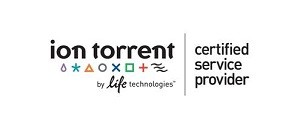More than 100 genes are estimated to be involved in hearing loss and deafness. However, mutations in only two genes, GJB2 (connexin 26) and GJB6 (connexin 30), represent more than 65% of non-syndromic deafness and about 35% of sporadic forms, with a carrier frequency of 1 in 33 in the general population.
Typically, molecular genetic testing of the GJB2 and GJB6 genes is the first and basic test that should be performed in individuals with non-syndromic deafness. In cases where testing for these common recessive DFNB1 type of deafness (GJB2 and GJB6 genes) fails to uncover the genetic cause of hearing loss, today we are in a position to apply massive genomic testing for mutations in more than 120 genes that have been associated with all known forms of syndromic and non-syndromic forms of the disease.
Especially in hearing loss occurring during childhood, early educational intervention in addition to medical intervention, are essential for normal speech and language development. Moreover, even severe hearing loss may be restored very effectively with hearing aids or cochlear implants. The strategies applied for genetic testing aim at accurate and efficient identification of the underlying genetic causes and the results are useful:
- for understanding the cause of hearing loss,
- for predicting the acoustic characteristics,
- for disease prevention in the family,
- for accurate management of the symptoms and
- to determine the appropriate therapeutic options
Identification of the specific mechanism leading to defects of the cells in the inner ear through genetic testing, undoubtedly facilitates the development and introduction of new and specialized treatments for different types of hearing loss.
Because of these special disease characteristics, genetic testing in hearing loss is of extremely high value in medical practice and is essential for completing the diagnosis. Furthermore, genetic diseases associated with hearing loss are expressed with all possible types of inheritance, i.e. as autosomal recessive, autosomal dominant and X-linked, making it even more complicated to diagnose the specific type.
Recently, the application of NextGenerationSequencing (NGS) has become a highly effective diagnostic strategy, through the parallel analysis of a large number of genes involved in hearing loss.
InterGenetics has developed and offers an NGS panel for the genomic analysis of 129 genes (see gene list), associated with a wide spectrum of syndromic and non-syndromic types of hearing loss and deafness, irrespective of the mode of inheritance.
We perform DNA sequence analysis, via Next Generation Sequencing (NGS) on a Genome Analyzer – Ion Proton platform, of all exons and intron-exon junctions/splice sites of the 129 genes, allowing us to detect >98% of all pathogenic mutations of the genes through the use of specially developed bioinformatics tools.
Where possible and/or necessary, we carry out additional MLPA analysis in order to detect deletions/duplications of the genes (please consult the final test report).
The test is highly sensitive and complex, so it is necessary that the results are assessed by a specialized team of clinical and molecular geneticists, in order to ensure safe and reliable testing.
Proper clinical genetic assessment and genetic counseling, both before and after testing, is essential in order to determine the optimum testing strategy and also to communicate properly the concepts of pathological and normal.
See the genomic list of deafness
InterGenetics is a Ion Torrent™ Certified Service Provider for Ion AmpliSeq sequencing on the Ion Proton platform.

